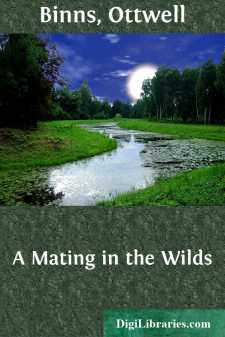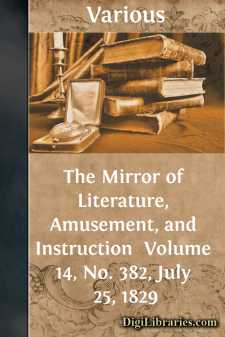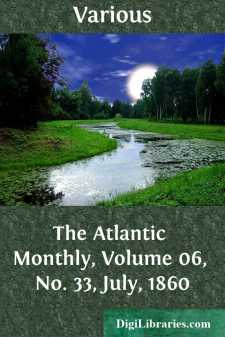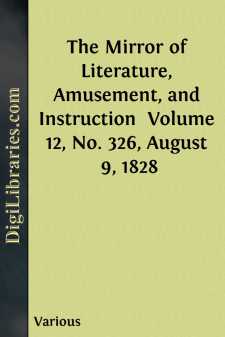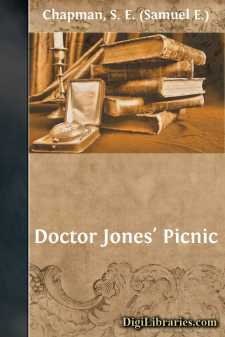Categories
- Antiques & Collectibles 13
- Architecture 36
- Art 48
- Bibles 22
- Biography & Autobiography 813
- Body, Mind & Spirit 142
- Business & Economics 28
- Children's Books 17
- Children's Fiction 14
- Computers 4
- Cooking 94
- Crafts & Hobbies 4
- Drama 346
- Education 46
- Family & Relationships 57
- Fiction 11829
- Games 19
- Gardening 17
- Health & Fitness 34
- History 1377
- House & Home 1
- Humor 147
- Juvenile Fiction 1873
- Juvenile Nonfiction 202
- Language Arts & Disciplines 88
- Law 16
- Literary Collections 686
- Literary Criticism 179
- Mathematics 13
- Medical 41
- Music 40
- Nature 179
- Non-Classifiable 1768
- Performing Arts 7
- Periodicals 1453
- Philosophy 64
- Photography 2
- Poetry 896
- Political Science 203
- Psychology 42
- Reference 154
- Religion 513
- Science 126
- Self-Help 84
- Social Science 81
- Sports & Recreation 34
- Study Aids 3
- Technology & Engineering 59
- Transportation 23
- Travel 463
- True Crime 29
Sort by:
by:
Ottwell Binns
THE MAN FROM THE RIVER The man in the canoe was lean and hardy, and wielded the paddle against the slow-moving current of the wide river with a dexterity that proclaimed long practice. His bronzed face was that of a quite young man, but his brown hair was interspersed with grey; and his blue eyes had a gravity incompatible with youth, as if already he had experience of the seriousness of life, and had...
more...
by:
Various
POPE'S TEMPLE, AT HAGLEY Reader! are you going out of town "in search of the picturesque"—if so, bend your course to the classic, the consecrated ground of HAGLEY! think of LYTTLETON, POPE, SHENSTONE, and THOMSON, or refresh your memory from the "Spring" of the latter, as— Courting the muse, thro' Hagley Park thou strayst. Thy British Tempe! There along the dale, With...
more...
by:
Various
A GLANCE AT THE SCIENCE. The purpose of this article is to present, in a brief and simple manner, the leading principles on which the science of Meteorology is founded,--rather, however, in the spirit of an inquirer than of a teacher. For, notwithstanding the rapid progress it has made within the last thirty years, it is far from having the authority of an exact science; many of its phenomena are as...
more...
OLIVER WENDELL HOLMES. BY GEORGE STEWART, D. C. L., LL. D. To the year 1809, the world is very much indebted for a band of notable recruits to the ranks of literature and science, statesmanship and military renown. One need mention only a few names to establish that fact, and grand names they are, for the list includes Darwin, Gladstone, Erastus Wilson, John Hill Burton, Manteuffel, Count Beust, Lord...
more...
by:
Various
YOUNG NAPOLEON. (For the Mirror.) It is impossible at this time of day, to foretell how the future destinies of Europe may be influenced by the subject of these lines. To use the words of the talented author of the Improvisatrice, "Poetry needs no preface." However in this instance, a few remarks may not be uninteresting. Until I met with the following stanzas, I was not aware that Napoleon had...
more...
HUNTER PATROL By H. BEAM PIPER and JOHN J. McGUIRE Many men have dreamed of world peace, but none have been able to achieve it. If one man did have that power, could mankind afford to pay the price? At the crest of the ridge, Benson stopped for an instant, glancing first at his wrist-watch and then back over his shoulder. It was 0539; the barrage was due in eleven minutes, at the spot where he was now...
more...
"The knife hangs loose in the sheath."—Old Norsk Proverb. I spent a month of the summer of 188- in Norway—"Old Norway"—and a friend of mine, Dr. John Robson, who is as great a fisherman as he is a physician, and knows that I love a stream where the trout and I can meet each other alone, and have it out face to face, uninterrupted by any interlopers, did me a favor to which I was...
more...
PREFACE. I must confess that I offer this romance to the reading public with no little trepidation. I am fully aware of having transcended the ordinary rules and paths of legitimate romance, and that I have presumed to broach fearlessly the deep things of God. The scope of the work is infinitely beyond the remotest thought of the writer when he began this labor; but as it grew, deepened and broadened...
more...
by:
John Richardson
CHAPTER I. The night passed away without further event on board the schooner, yet in all the anxiety that might be supposed incident to men so perilously situated. Habits of long-since acquired superstition, too powerful to be easily shaken off, moreover contributed to the dejection of the mariners, among whom there were not wanting those who believed the silent steersman was in reality what their...
more...
by:
Pierre Besnier
READER. Meeting by chance with this ingenuous offer, I thought it might not be improper since I found it in another dresse, to make it speak another Language too, which among the most creditable of Europe, hath not desisted from its claim to Antiquity: There are very few Nations but have, at sometime or other, laid in their pretences to a supremacy for their Language, and have boasted an assistance...
more...


